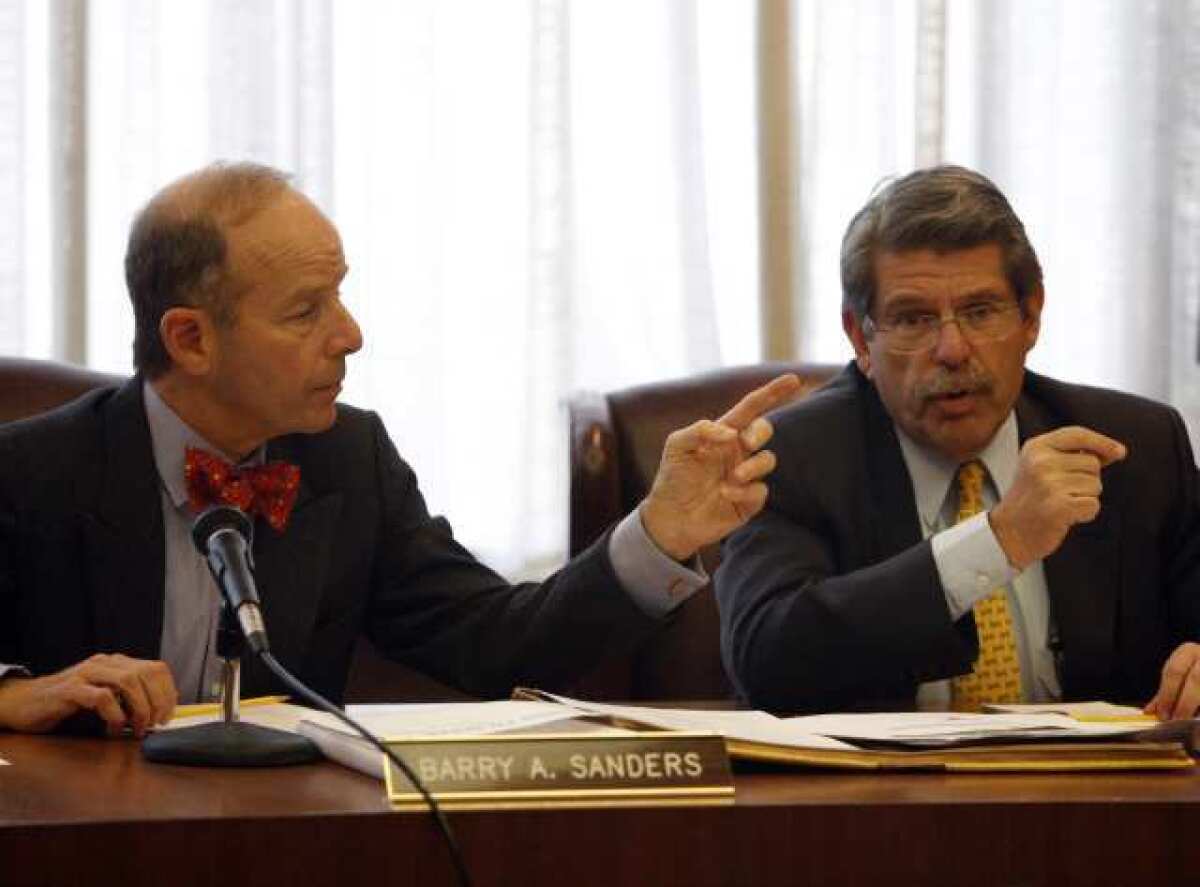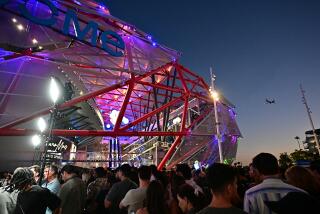L.A. Coliseum commission decides to continue having raves

- Share via
The Los Angeles Memorial Coliseum Commission voted unanimously Wednesday to require rave promoters to come before it at least 60 days in advance of an event for approval, an action taken as an alternative to reinstating a ban on the events.
The moratorium had begun June 30 after the overdose death of a 15-year-old girl who had attended a massive festival at the stadium. The ban was lifted on a controversial vote last month.
“There’s a way to do it right where we protect the public and allow this opportunity to take place,” said Supervisor Don Knabe, who serves on the commission and said he preferred regulating raves at the publicly owned venue rather than see them “driven to the back alleys.”
Commissioners promised added safeguards to protect rave participants and the surrounding South Los Angeles neighborhood.
“We’re going to limit whatever abuses take place and improve conditions for the neighborhood,” Commissioner David Israel said.
The nine-member joint city, county and state commission had voted to ban the electronic music festivals after Sasha Rodriguez, a high school student and drill team member from Atwater Village, died days after falling into a coma after attending the Electric Daisy Carnival.
Six members voted to lift the moratorium Nov. 3, outraging commissioners Rick Caruso, a shopping center magnate, and Los Angeles County Supervisor Zev Yaroslavsky, who were absent and complained there was no advance notice that the ban might be reconsidered.
On Wednesday, Caruso initially called for a vote on renewing the ban on raves, calling them “morally wrong.” He eventually voted for the compromise, but said the events pose a danger to public health that officials will be hard-pressed to control.
“Why are we planning an event where we know there is a likelihood that people are going to get hurt?” Caruso said. “ The revenue in this does not justify the risk.”
Raves are a significant source of revenue for the Coliseum, which is publicly owned but not supported with tax dollars. Income in October, for example, was less than expected because of lower attendance at USC games and a Halloween event, according to a report at Wednesday’s meeting.
But commissioners who opposed a moratorium on raves said they were not driven by the bottom line.
“We had to weigh public safety and free-speech concerns,” Israel said.
He said new recommendations from a Los Angeles County Department of Public Health report on improving safety at raves will help ensure participants’ safety and reduce the risk of further injuries.
The recommendations include added security based on the size of the rave; added drug searches at entrances and inside; stricter enforcement of age limits; and increased on-site emergency medical treatment.
Yaroslavsky and Knabe have proposed that the county Board of Supervisors adopt all of the recommendations, instruct the Department of Public Health to monitor their implementation through the end of August 2011 and report back the next month.
Supervisors are expected to consider the proposal Tuesday, and the commission will monitor the fallout of future raves, Yaroslavsky said.
“If we can’t control it, then the promoters are going to have to find another place,” he said.
The safety protections come in addition to measures that promoters agreed to for three raves scheduled before the ban took effect, which included hiring doctors and nurses to work on site, enforcing a minimum age of 18 and ending the events at 2 a.m.
Coliseum managers said no major problems were reported at raves Aug. 21 and Oct. 23. Both were one-day events that attracted 6,000 and 22,000 people, respectively, compared with the two-day Electric Daisy Carnival that attracted 185,000 participants. A third rave is scheduled for New Year’s Eve.
Electric Daisy Carnival promoter Pasquale Rotella issued a statement Wednesday praising the commission vote.
“It is clear the commission recognized the effectiveness of the new safety measures that we have already implemented,” he said, adding that his company intends to work with the commission to produce “safe and secure” shows.
molly.hennessy-fiske@latimes.com
More to Read
Sign up for Essential California
The most important California stories and recommendations in your inbox every morning.
You may occasionally receive promotional content from the Los Angeles Times.











